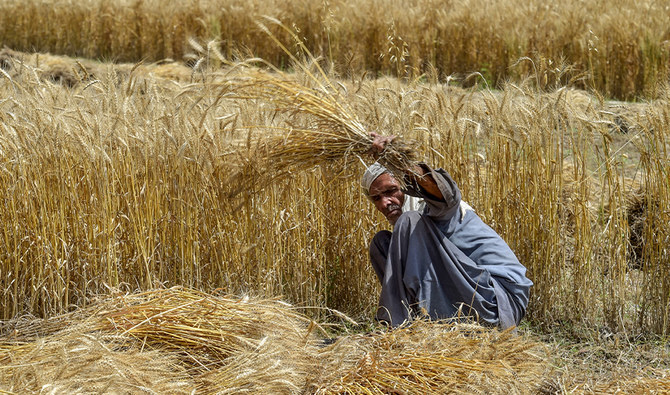By: Farah Atiq
Pakistan, a country heavily reliant on its agricultural sector, faces a significant challenge in its wheat market. The policymakers are grappling with the task of formulating an effective policy that ensures an adequate supply of wheat in the market while maintaining economic accessibility for the masses. The country’s wheat imports bill reached a staggering $1 billion in April 2024, raising questions about the necessity of such imports when local farmers are struggling to sell their produce at reasonable prices.
The government has imported wheat regardless of the ongoing harvest, causing small-scale farmers to be unable to sell their wheat for more than 3100 to 3200 PKR per 40 kilograms in Sindh and 3200 to 3500 in Punjab. This situation is further aggravated by the prevailing high interest rates in the economy. Moreover, the recent decision by the government to increase gas prices has led to a rise in urea prices by approximately Rs1,000 per bag. Experts argue that this move will burden farmers and could potentially lead to black-marketing practices. The cumulative effect of these policies is creating an unsustainable environment for the farming business, with grievances mounting among farmers.
Failure to address these issues in a timely manner could pose a serious challenge to Pakistan’s national food security and economic prosperity. Additionally, amidst the current global geopolitical tensions, it becomes imperative for the government to prioritize the concerns of its farmers.
Recent events such as reports of an Israeli strike on Iran have added to the uncertainty. Wheat futures jumped more than 3% following these reports, indicating the sensitivity of global markets to geopolitical tensions. Furthermore, the tension between Russia and Ukraine has caused a strain on the global market supply since 2022. For instance, 38 countries have imposed export restrictions, affecting 19.38% of the world’s imported calories, disrupting supply chains and causing price hikes.
To address these challenges, Pakistan needs to reconsider its wheat procurement policies.
Improving Storage Capacity and Volume: One of the primary issues facing Pakistan’s wheat market is the lack of adequate storage facilities. The country experiences significant post-harvest losses due to inadequate storage infrastructure. Therefore, investment in improving storage capacity and volume is crucial. This would not only help in reducing post-harvest losses but also ensure a steady supply of wheat in the market throughout the year.
Support for Small Farmers: Small-scale farmers form the backbone of Pakistan’s agricultural sector. However, they often face difficulties in accessing credit and inputs at affordable rates. The government should provide financial support to these farmers to help them cope with price volatility and input price hikes. Additionally, measures should be taken to ensure that they are not burdened by policies such as the recent increase in gas prices, which has led to a rise in urea prices.
Promoting Electronic Warehouse Receipt Systems: The adoption of electronic warehouse receipt systems can help small farmers access credit more easily. These systems allow farmers to use their produce as collateral to obtain loans from financial institutions. By promoting the use of electronic warehouse receipt systems, the government can improve access to credit for small farmers, thereby enhancing their ability to invest in their farms and improve productivity.
Enhancing Wheat Productivity: Pakistan currently has very low wheat yields compared to other wheat-producing countries. To address this issue, there is a need to invest in research and development to develop high-yielding wheat varieties that are well-suited to the country’s agro-climatic conditions. Additionally, measures should be taken to improve agronomic practices and provide farmers with access to modern farming technologies and techniques.
In conclusion, the challenges facing Pakistan’s wheat market are multifaceted and require urgent attention from policymakers. Failure to address these issues could have far-reaching consequences for the country’s agricultural sector and its overall economy. Therefore, the government must take immediate steps to improve storage capacity, support small farmers, promote the use of electronic warehouse receipt systems, and enhance wheat productivity. Only by doing so can Pakistan ensure its food security and economic stability in the face of current global geopolitical tensions and market uncertainties.
The writer is a Research Associate at FPCCI’s Policy Advisory Board, Visiting Faculty at multiple universities. Specializes in trade, agriculture, climate, and sustainability research, aiming to bridge research in economics with practical policy for sustainable economic development. She can be reached at [email protected]
